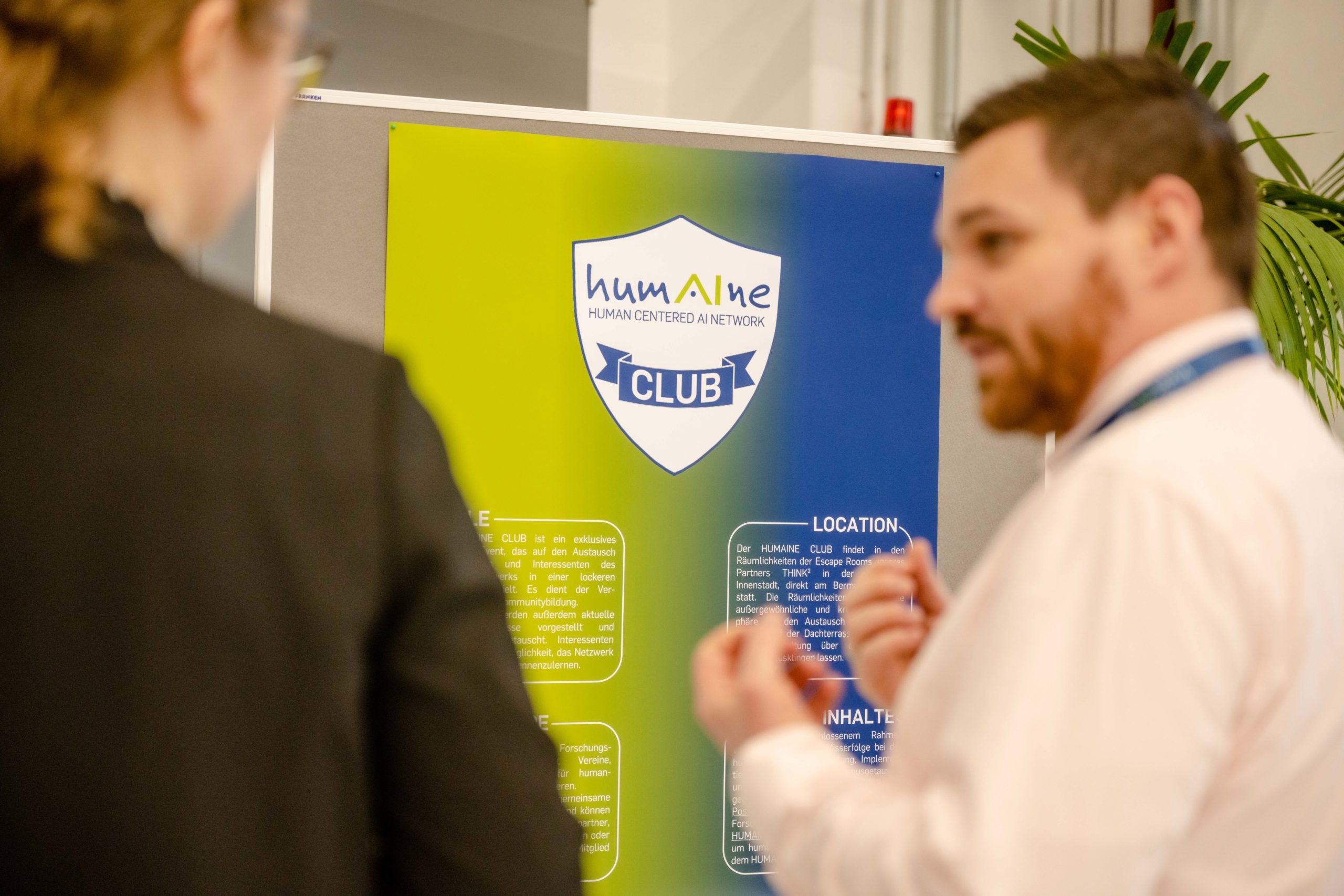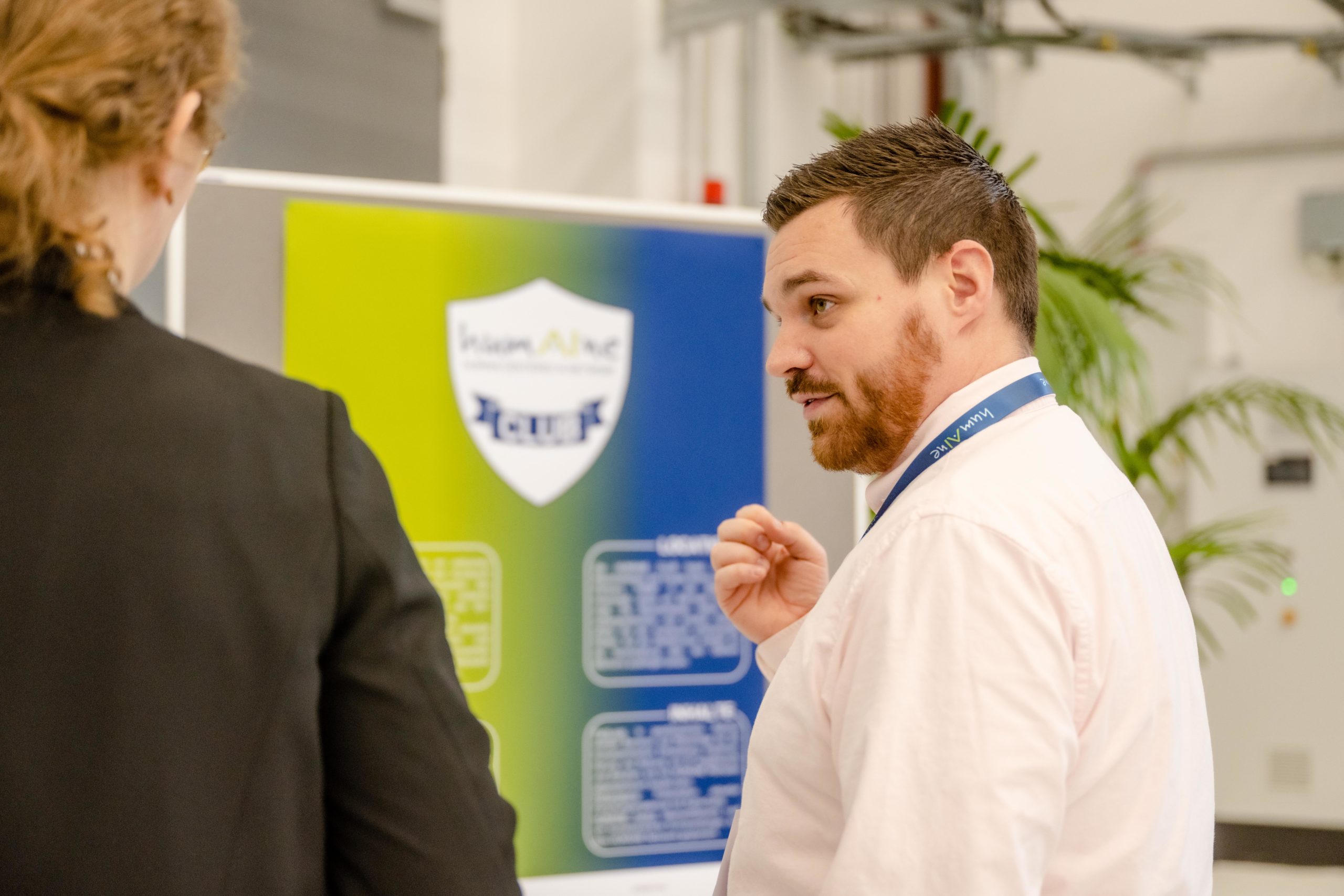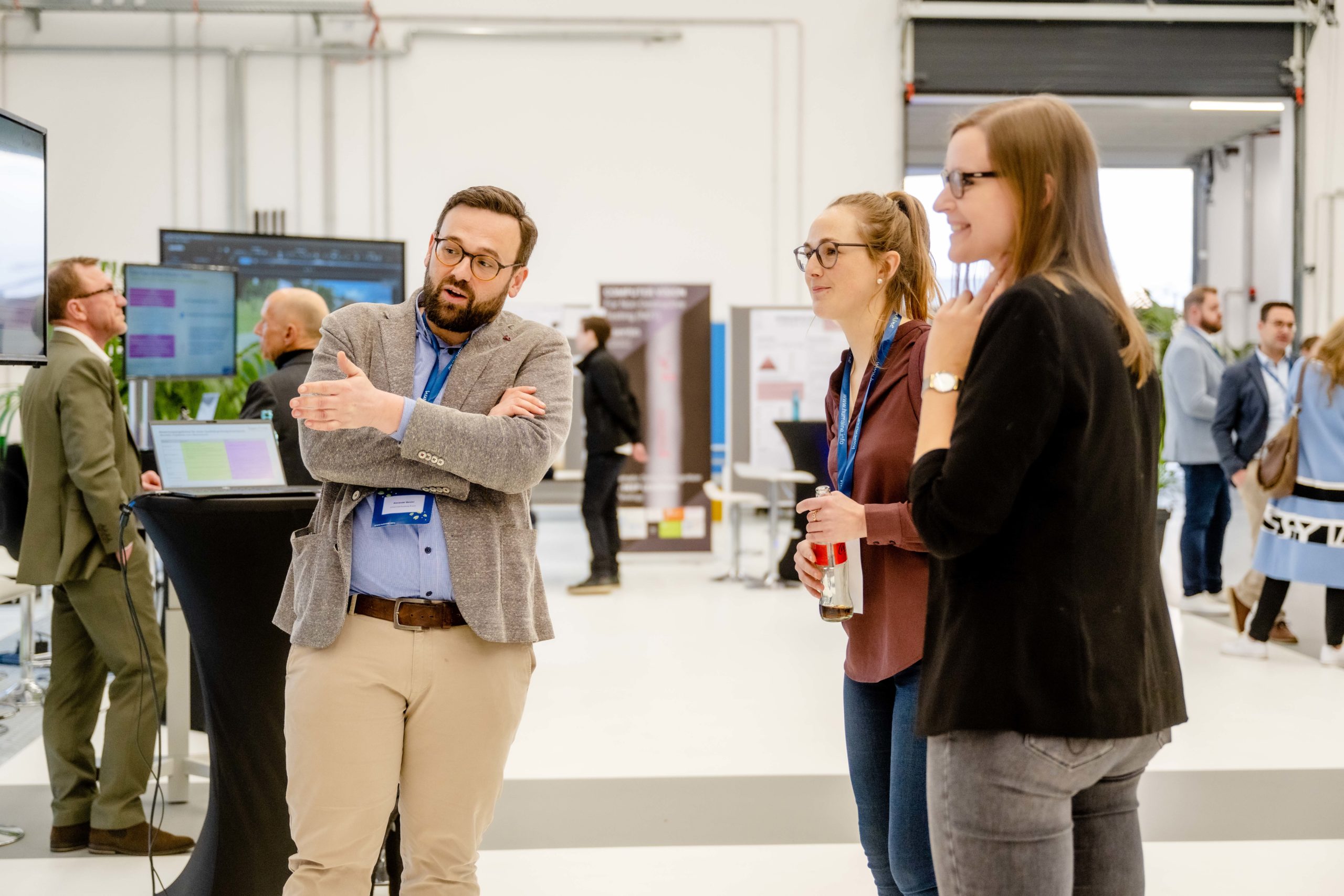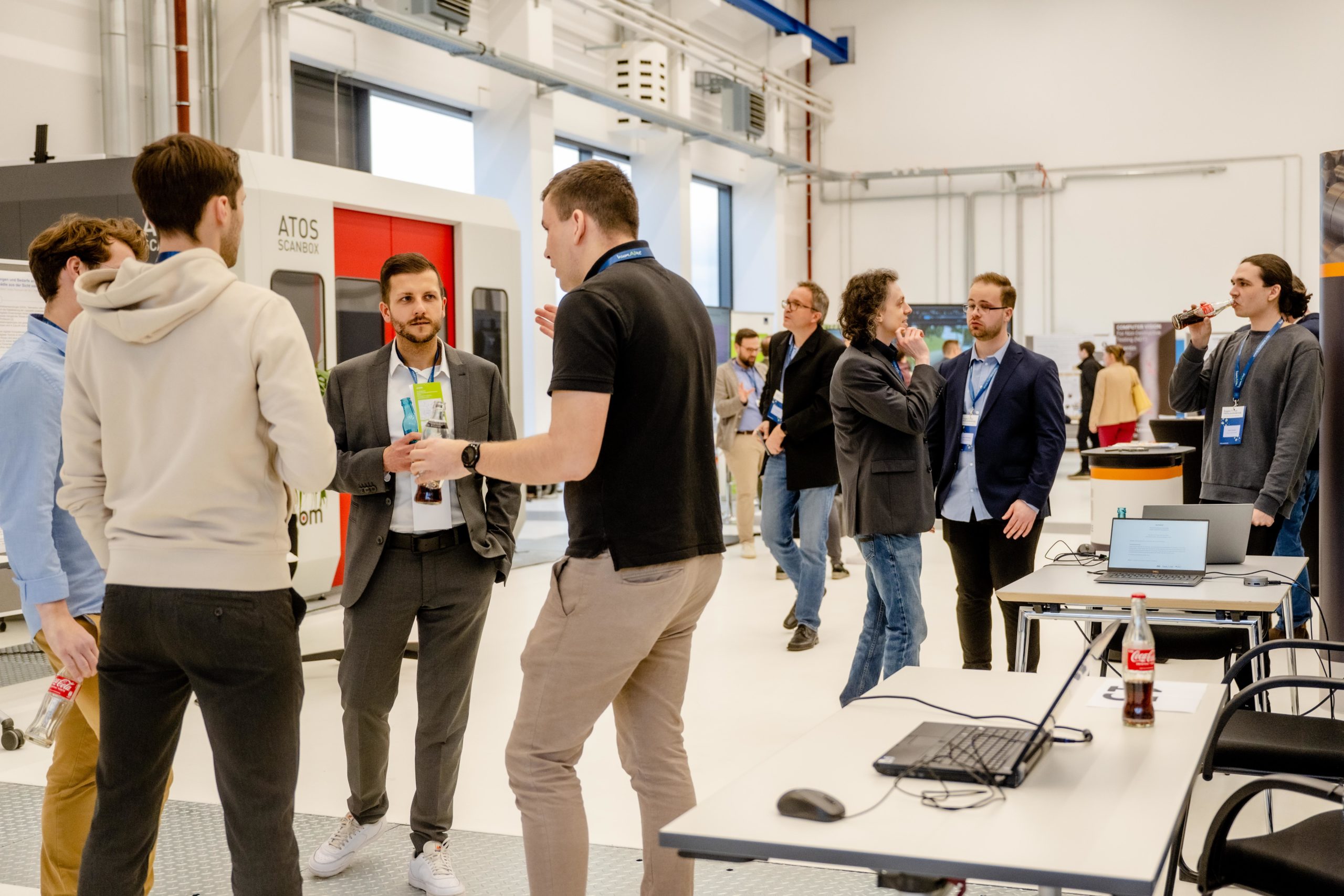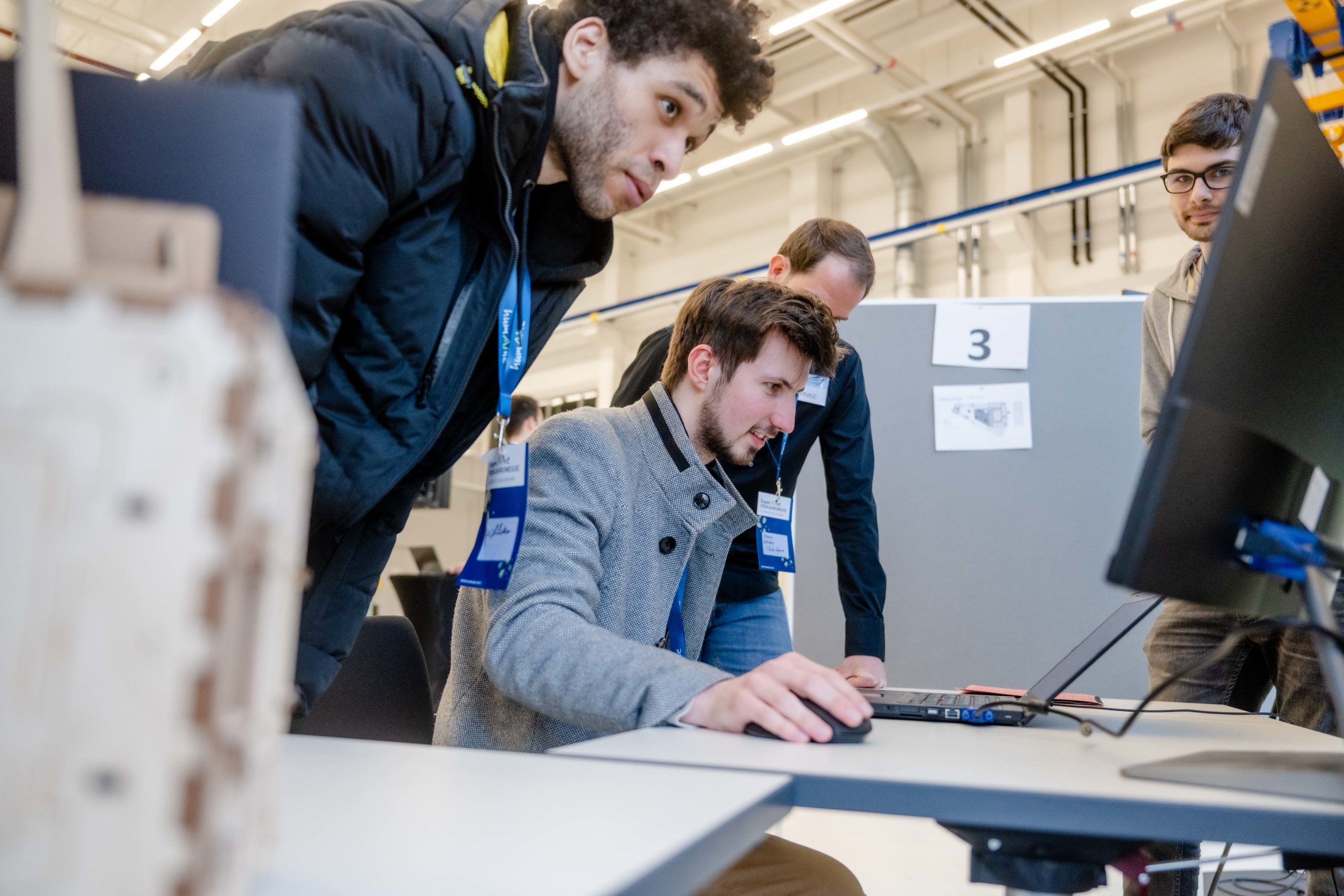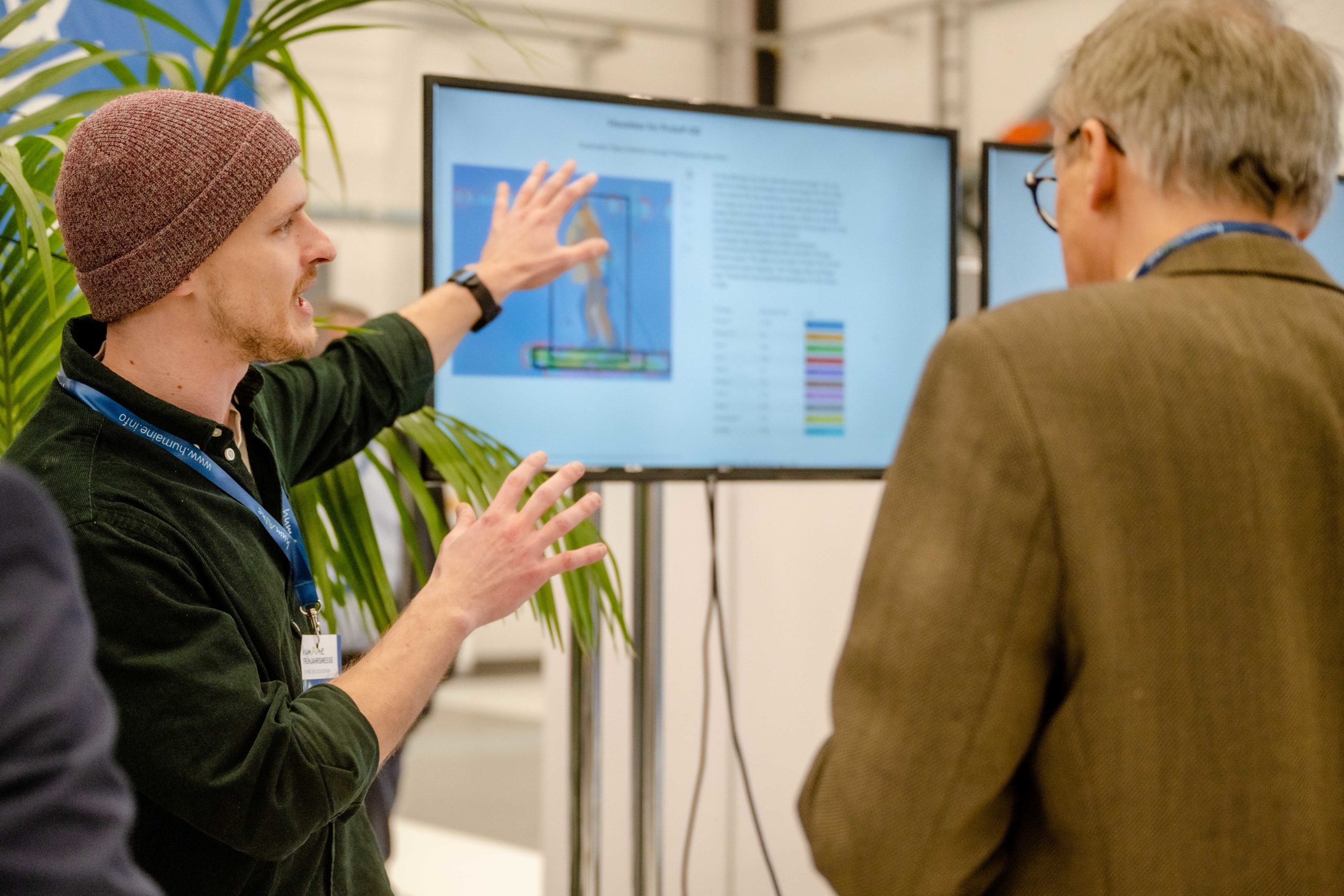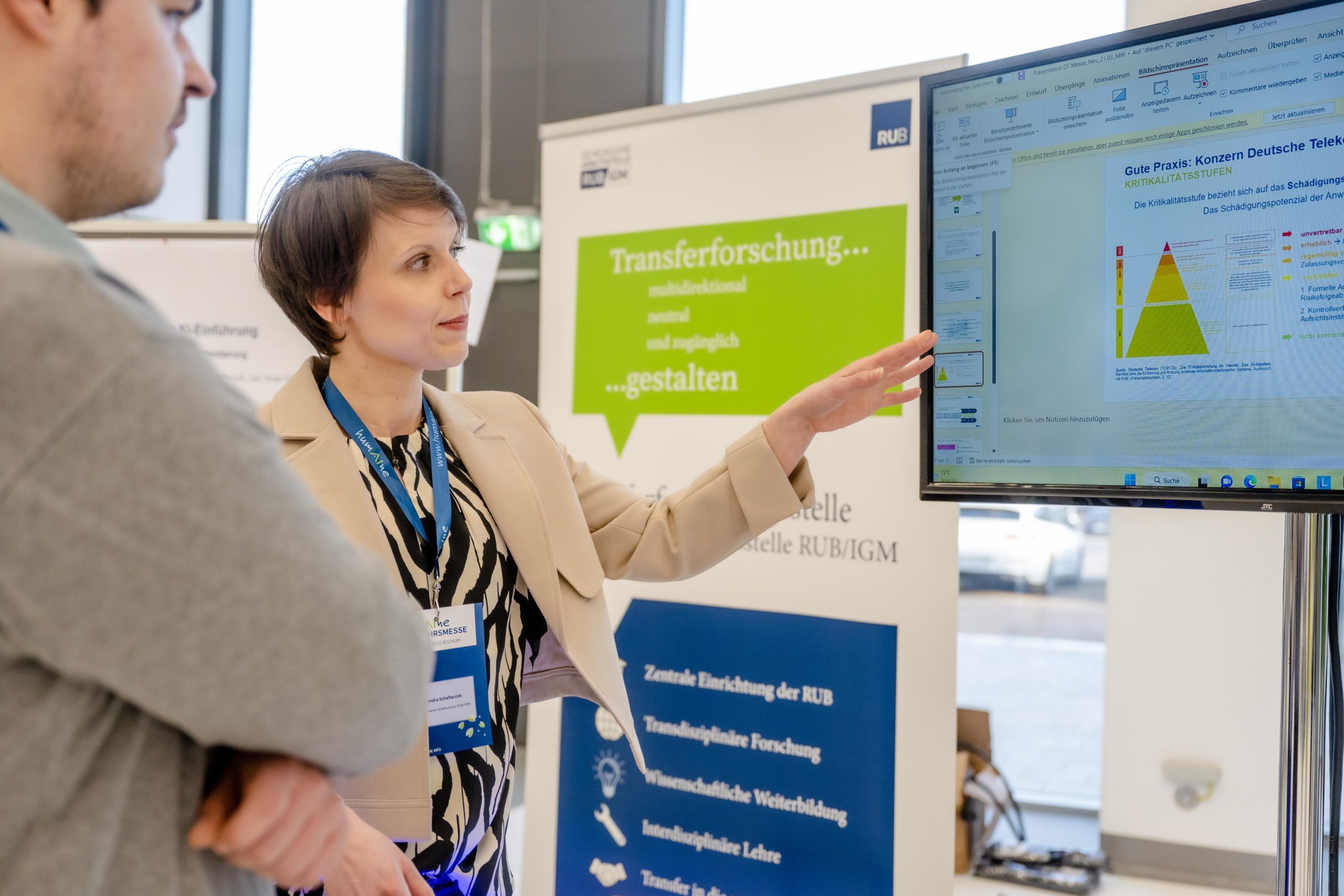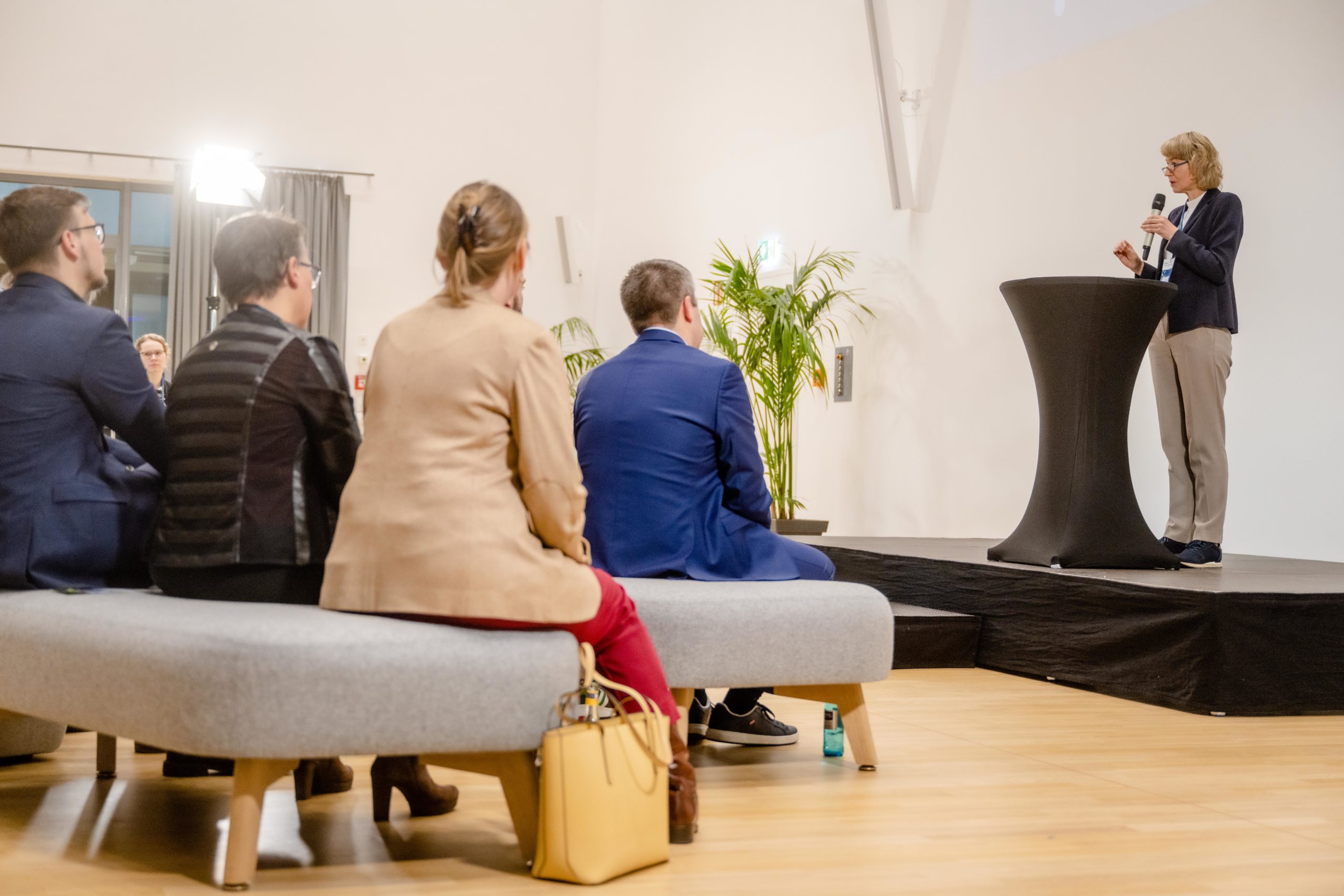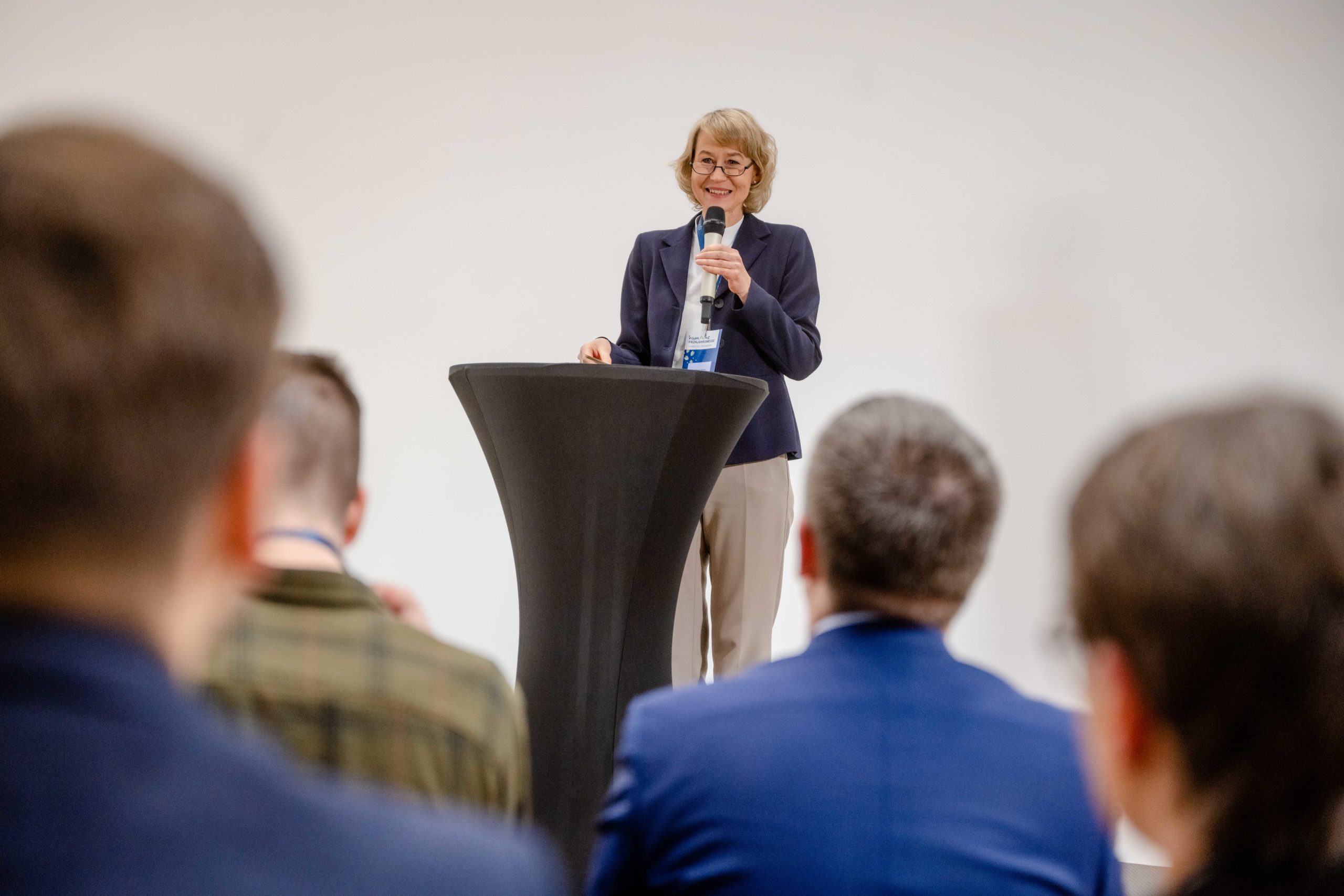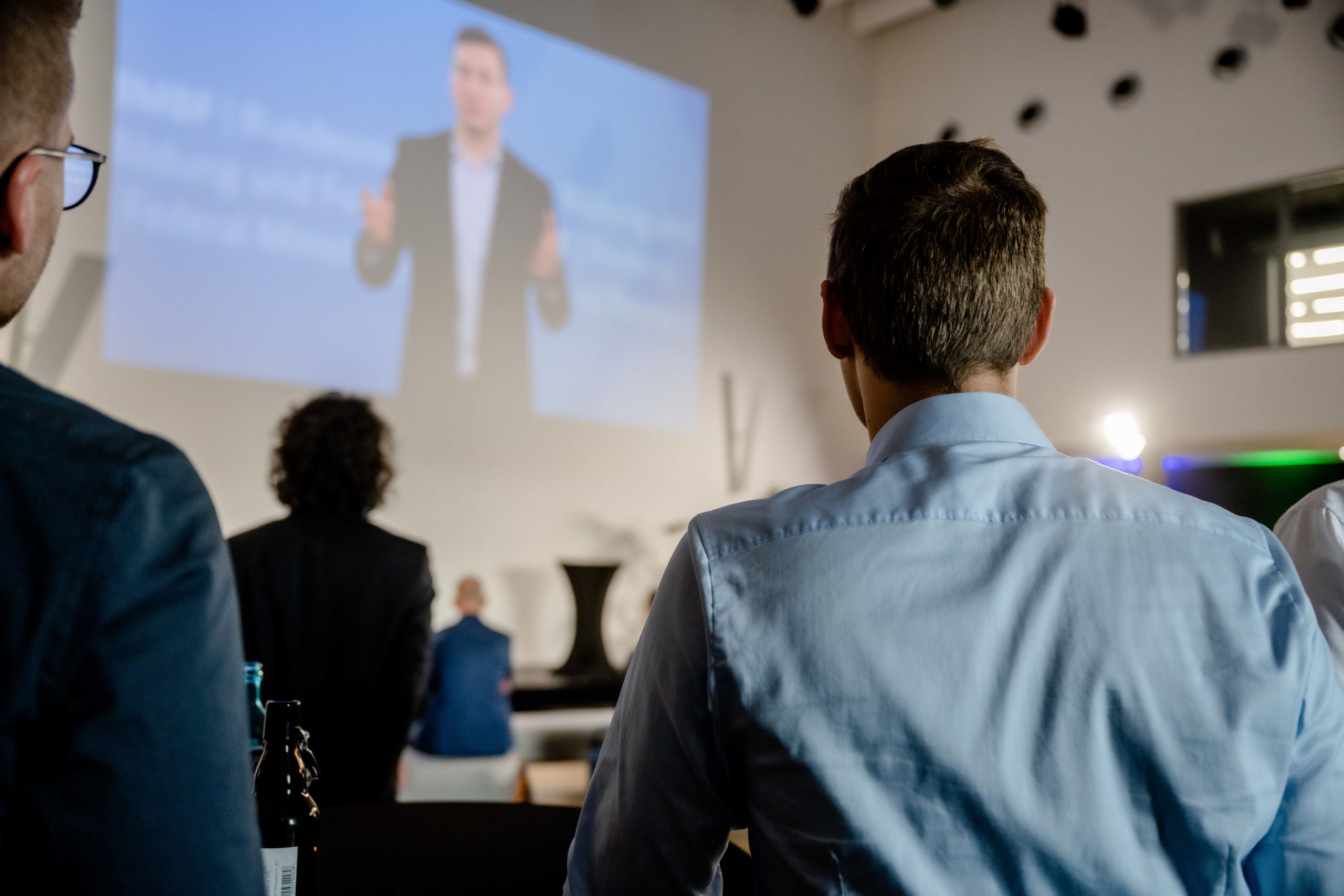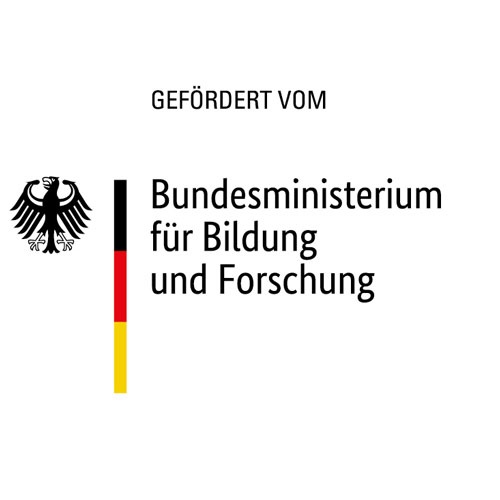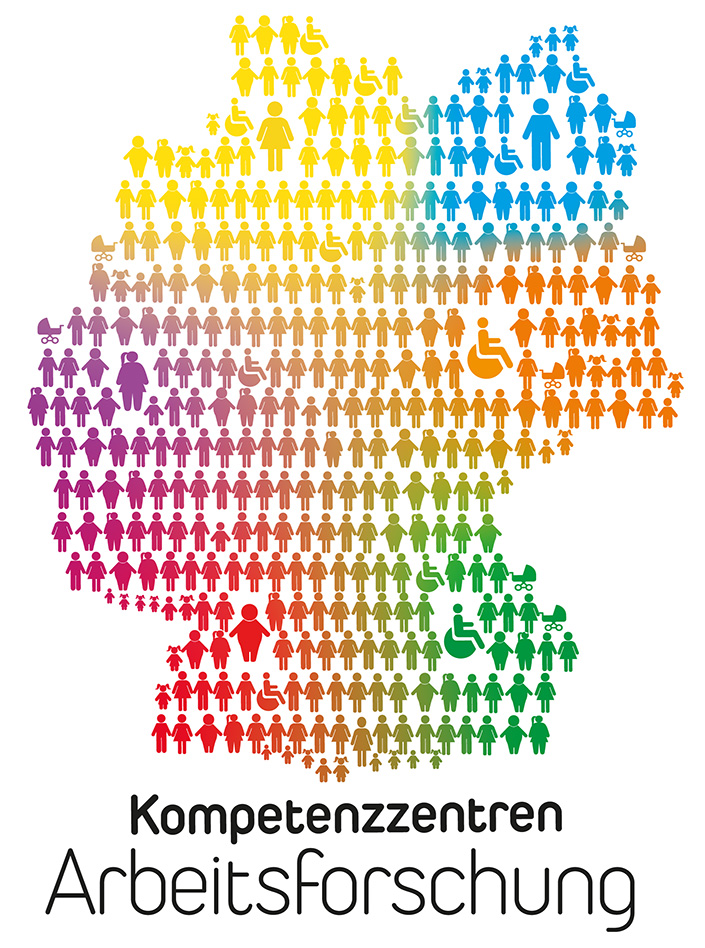Foto ©RUB, Marquard
On March 23, 2023, more than 100 guests followed the invitation of the HUMAINE competence center HUMAINE to their public meta-milestone meeting in the form of a spring fair. The following day, more than 180 students and graduates interested in AI took the opportunity to get to know the companies in HUMAINE’s network at a career fair.
The human being at focus when working with artificial intelligence
The regional competence center HUMAINE of the Metropole Ruhr supports companies in unleashing the full potential of their AI solutions by establishing a human-centered process approach that ensures that all relevant parties are involved in AI development, implementation and use. This reduces acceptance problems and sets the foundation for increasing economic efficiency and better living and working conditions. The interdisciplinary team from various fields such as work science, information technology or engineering, together with the practice partners of the project consortium, presented the project results of the last two years in the form of the HUMAINE Spring Fair in the new research building ZESS.
Fotos ©RUB, Marquard
HUMAINE has the backing of research and politics
Motivating words came via video message from Parliamentary State Secretary Mario Brandenburg. He emphasized the relevance of human-centricity for AI applications in a digitized society. The Rectorate of the Ruhr-University Bochum, represented by Professor Günther Meschke (Vice-Rector for Research and Transfer), presented the role of the Competence Center HUMAINE as a puzzle piece of the RUB’s transfer strategy on the Science Campus Mark 51°7. The director of the research building ZESS (Center for the Engineering of Smart Product Service Systems) and co-speaker of HUMAINE, Professor Bernd Kuhlenkötter, also welcomed the fact that HUMAINE will not only use the research building as a venue for events, but also as the permanent location of the Competence Center’s headquarters in the future. HUMAINE is thus integrated into the research and transfer cluster that is being created on the former Opel site in Bochum. Next, project leader Professor Uta Wilkens (Institute of Work Science) opened the event’s decentralized part. In her speech, she also recalled the recent positioning of the German Ethics Council on the role of humans in working with artificial intelligence, which aligns with the goals of the Competence Center.
The exhibits showed the wide range of tools and applications from the fields of industry and health care
With 20 exhibits to be viewed and even experienced, the more than 30 actors of the project consortium presented the project results to date to the interested audience. In addition to demonstrators for speech recognition and therapy support in speech therapy, defacing of MRI data or image recognition in quality inspection, visitors were able to try out for themselves the first prototype of a simulation lab for role development when working with AI. The concept for permanent cooperation beyond the funded project period was also presented and discussed. Furthermore, the practice partners from the pilot applications took the opportunity to show the progress and results of their applications and experiences with AI. As a result, there were many opportunities for intensive exchange between partners and interested parties from research and practice.
